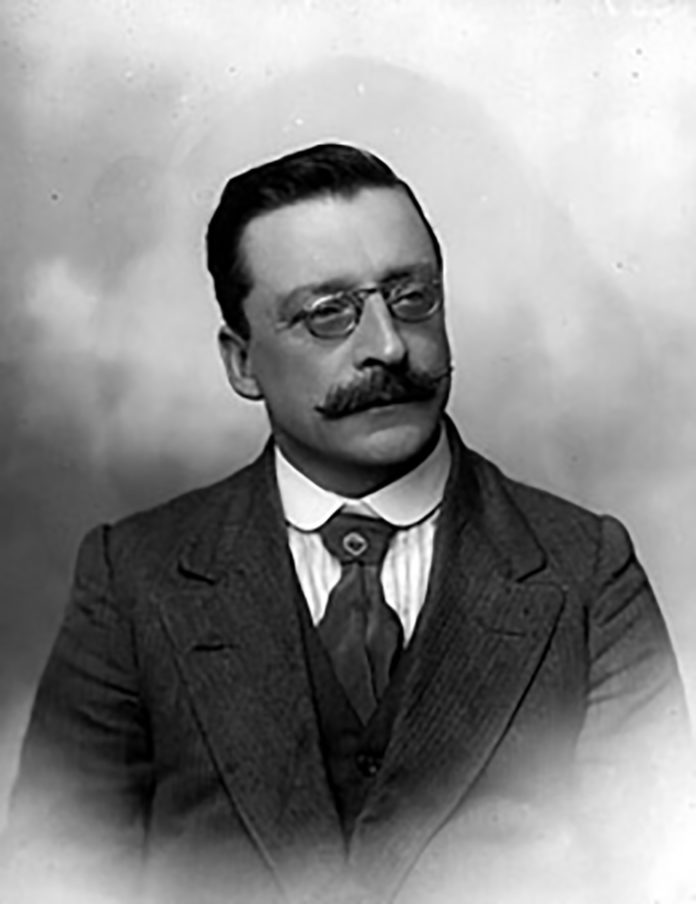
This Friday marks the 100th anniversary of Arthur Griffith, founder of Sinn Féin and the chair of the Treaty delegation that negotiated the Anglo-Irish Treaty. He died just 10 days before his compatriot Michael Collins on 12th August 1922.
The following is the oration delivered by WT Cosgrave, and contained within Noel Scannell’s soon-to-be-published book on Michael Collins.
THE ORATION BY W.T. COSGROVE
“This great man laboured for thirty years to achieve that which he scarcely lived to see. The work to which he set his hand was a work which in time, attracted the attention and support of the nation by reason of the earnestness, the sincerity, and the selflessness of the efforts which he made to achieve the destiny of the nation which gave him birth. This great man abhorred those magicians of political metaphysics who say one thing and mean another. At no time during his life, during the period that anyone here knows this man, did he ever say, yes, when he meant no or say no when he meant, yes, and when he signed the Treaty with the enemy, whom he had encountered and met and fought during the last thirty years, he meant to keep it. His signature was his bond for the honour of the nation on whose behalf he pledged his word. Having achieved all he had laboured to achieve, he allowed no mere catch cries to turn him from his purpose, and his signature was his bond that he would accept and conduct his part of the bargain for as long as the other side carried out their part of the bargain.”
“This man was not merely a great patriot or a great democrat; he was a great man, and for the rest of the history of this country his name and his work will be a lesson and an inspiration to those who come after him – a lesson now in this time of easy indulgence when everybody seems to think the time for work is past. This man’s life will be something to look back to, something that people can review and realise what work had got to be done in order that we should arrive at this period in our nation’s history. He died unlike many of his great predecessors who were leaders in this country, a successful man having accomplished the thing to which he had set his life’s work, but he died a sorrowful man, and if it were not for the greatness of his heart and the magnificence of his mind, he would have died a broken-hearted man, for within the last two months of his life he looked out upon the moral desolation which, for the time being, darkened his country and stained its name both home and abroad – a moral desolation not merely in the ordinary acceptation of the term in which people think of dishonesty and disregard of individual rights, of reckless murder and and general insincerity, but also the moral desolation in a blindly dishonest outlook and attitude towards the national position and the effect of the nation’s Treaty of Peace
“Those of us who knew him during the last month of his life felt every day when he addressed us that that man must have suffered more than any other man in this country, when he thought of the wounds of his soldiers, and the deaths of the men who gave their lives to preserve the honour and the integrity of their country, and to preserve that which he had fought for and which he had secured before he died
“This man was certainly a man of patience without display, a man of absolute honesty and steadfastness, a man of great character; he was a man who had never feared to appeal for a great national morality that this nation should take its place amongst the other nations with just pride. It is right, here at his graveside, that we should also refer to the confidence he had in his country. He looked through a cloud which he knew had to be dissipated and swept away and the country restored to a normal consciousness with the same iron steadfastness as thirty years ago when he set out towards the goal of the country’s regeneration. He had now, at the moment when he has been taken from us, set himself with just as much steadfastness to accomplish the moral regeneration, to retrieve the nation’s honour, established in the liberty that has been won, which only people in unity and honesty of purpose could hope to hold.
“It is sad to lose him, it is sadder still to see the state of the country; and the message we take from his graveside is a message of hope inspired by truth, honesty and steadfastness, and as we separate, let us remain united in spirit, and we may hope that the clouds will soon have passed, and the sun of happiness and prosperity rise on our beloved land again.”







